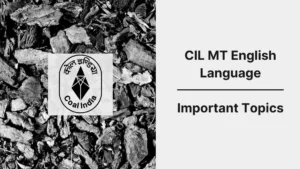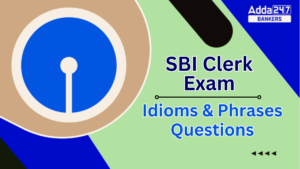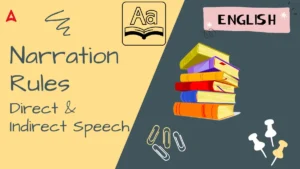Directions (1-8): In the following questions, a sentence is given in bold. Then three paragraphs are given. From the given paragraphs you need to choose those that help us to infer the given bold sentence.
Q1. Business growth of the entities is thwacked due to liquidity crisis
(I) Bank lending for most housing finance companies has dried up and as a result, cost of funds for these lenders have gone up substantially. Some of the home loan companies have either defaulted on repayment or have deferred payment due to the liquidity crisis. According to a study by rating agency Crisil, growth of asset under management of housing finance companies halved in the second half of the 201819.
(II) The liquidity crisis post the IL&FS default has hit the assets under management (AUM) of Housing Finance Companies (HFC) and also curtailed their disbursements, a report by rating agency Crisil said, adding that it expects growth to revive to 12 per cent to 14 per cent for these companies in the current and next fiscal.
(III) Housing finance companies are expecting higher refinance limits from the National Housing Bank, in the Budget, to tide over the current liquidity crisis they are facing. Some of the mortgage lenders and business leaders have written to the Finance Ministry requesting that their proposal be considered, the chief executive officer of a housing finance company
(a) only II
(b) only I
(c) both II and III
(d) both I and III
(e) all I, II, III
Q2. Only traditional aid and government finance are not enough for the scale of the developmental challenge
(I) Traditional aid is often provided by means of supporting local development aid projects. In these projects, it sometimes occurs that no strict code of conduct is in force. In some projects, the development aid workers do not respect the local code of conduct. For example, the local dress code as well as social interaction. In developing countries, these matters are regarded highly important.
(II) Britain’s statements around severing of aid to middle-income countries including China and India created the impression that it had stopped all funding to the countries, when in fact the government is still giving both nations millions of pounds. Critics of UK aid often point out that India and China, which receive some UK aid, have active space exploration programmes.
(III) An estimated $7 billion has been spent under corporate social responsibility (CSR) programmes run by government in the last four years until March 2019 in India. That is a substantial sum spent for development. Recently, Wipro’s Azim Premji also committed $7.5 billion to charity. The estimated investment gap that requires to be bridged to achieve our sustainable development goals (SDGs) worldwide is $2.5-3 trillion annually. This makes it imperative to unlock new funding sources, debt and equity, for development. It is in this context that one should look at the emergence and increasing use of social impact and development impact bonds (SIBs/DIBs).
(a) only II
(b) only III
(c) both II and III
(d) only I
(e) None of these
Q3. Cooperation between the centre and state is a must for agricultural reforms
(I) Nearly 70pc of subsidies, taxes and other financial transfers involving farmers come from policies that heavily distort markets, notably by creating an artificial gap between domestic and world prices, the Organisation for Economic Co-operation and Development said in an annual survey of agriculture policy. After significant steps in the early 2000s to reduce subsidies supporting production and prices, which the OECD sees as wasteful and preventing structural investments in farming, reform progress “has largely stalled” in the past decade, it said in the report published this week.
(II) An expert committee on land leasing constituted by the NITI Aayog had come out with the Model Agricultural Land Leasing Act, 2016. Land leasing reforms, if carried out by state governments, will contribute immensely towards inclusive growth. However, it has been adopted fully in only a few states of India so far. Agriculture being a state subject, the central government formulates policy guidelines, advises, and allocates funds. Cooperation between the Centre and the states is a sine qua non for the expeditious implementation of reforms in the agriculture sector. Hence, a structured mechanism based on the philosophy of cooperative federalism is the need of the hour.
(III) The ‘Agriculture Export Policy, 2018’ seeks to double farm exports to $60 billion by 2022 from $30 billion last year, and will invest INR 1,400 crore to set up specialised clusters in different states for different produce to push exports. It also pushes for marketing reforms for doubling agricultural exports to $60+ billion by 2022.
(a) only II
(b) only I
(c) both II and III
(d) both I and III
(e) None of these
Q4. A blow-hot-blow-cold pattern marks almost all of Trump’s relations with countries the US is at odds with
(I) The trouble is not just Trump’s brazen disregard for international rules and past agreements, it is also the volatility that markets are made to suffer by all the frequent shifting of America’s stance. Financial markets around the world have been roiled on several occasions by a statement from Trump, only to find their assumptions outdated shortly afterwards.
(II) President Trump’s first steps on the global stage have sent shivers through the world. He is openly arguing with autocrats, while fighting a trade war with China and Europe and pulling out of international treaties. To many, his decisions are severely damaging the global standing of the US.
(III) Trumps talks with North Korea have bounced in every direction possible, and nobody knows if a deal is on its way to being struck or coming apart. On China, US trade negotiations had collapsed not long ago. Now Trump is ready to talk again, with the threat of slapping a 25% tariff on some $300 billion worth of imports from the People’s Republic kept aside—for the moment.
(a) only II
(b) only III
(c) both II and III
(d) both I and III
(e) None of these
Q5. Humans have lost the ability to press the correct action button owing to the usage of machines
(I) Automated systems are improving so rapidly that they will soon be able to do everything we can and more. Despite this, we still feel the need to always have a human in the loop—to take over in case something untoward happens. We do this because we believe that humans will always be able to apply some instinctual intelligence to find solutions where machines can’t.
(II) Reliance on automation has led to disaster in many situations. There have been people who have trusted their navigation systems so implicitly that, despite the evidence of their eyes, they have driven their cars off cliffs or into inhospitable deserts without so much as a raised eyebrow. We are so accustomed to turn-by-turn navigation that we’ve lost the art of finding our way by looking for waypoints and landmarks along the way.
(III) The pilots, in accordance with standard procedure, switched the flight to autopilot within four minutes of take-off. The computer, which had been programmed to hand over control to human pilots when it didn’t have enough data to safely fly the plane, disengaged itself from the controls after telling the pilots that they would have to fly it like a conventional aircraft. Which is why, a pilot who, until now had rarely ever flown the plane at any time other than take-off and landing, had to suddenly take control of the aircraft mid-flight. Based on flight recorder evidence, his inexperience began to show almost immediately: The plane began rocking from side to side and then inexplicably went into a steep climb and crashed.
(a) only II
(b) only I
(c) both II and III
(d) both I and III
(e) None of these
Q6. Coaching institutions undermine mainstream education and impose a huge cost on students
(I) Rising aspirations, combined with the falling quality of mainstream education, have meant that examination-oriented tuitions have taken over the lives of most school and college students in India. The coaching industry also generates employment. However, since it is unregulated and unorganised for the most part, it is difficult to estimate exactly how many people are employed in this line of work.
(II) Coaching institutions are imposing a huge emotional cost to society. They crush creativity. In most cases, they only help a student to swiftly secure marks in some entrance exam. To signal merit, exams are only one criterion, and not necessarily the best one. So, coaching institutions exist to help people achieve only one idea of merit. They do not enhance human capital. Confining students in classrooms and making them study subjects they often hate destroys their natural talent. Hence, the social cost of these institutions outweighs their benefit by far.
(III) In May, a deadly fire at a coaching centre in Surat snuffed out 22 young lives. The rate of suicides in Kota, where many students converge to prepare for entrance exams, remains high. And yet, the coaching industry is rapidly growing. Data from the National Sample Survey Office’s 71st round reveal that more than a quarter of Indian students take private coaching. Also, it is providing with the information regarding employment in this sector.
(a) Only (I)
(b) Only (II)
(c) Only (III)
(d) Both (I) and (III)
(e) None of these.
Q7. Capital infusion is the key reason in improvement of capital of banks
(I) In its latest monetary policy report, the RBI said recapitalisation of public sector banks and the ongoing improvement in their financials, and resolution of stressed assets under the insolvency and bankruptcy code are expected to improve bank credit offtake and support investment and aggregate demand.
(II) With the number of banks having more than 20% gross NPAs coming down in March 2019, RBI said this implied a broader improvement in asset quality. Credit growth of public sector banks were at 9.6% while private lendsers continue to robust growth of 21%. Overall credit growth marginally improved to 13.2% in March 2019 from 13.1% in September 2018.
(III) Following infusion by the government in public sector banks, the overall capital ratio of commercial banks ameliorated from 13.7% in September 2018 to 14.3% in March 2019, with state-run banks’ CAR ameliorating from 11.3% to 12.2% during the period. However, there was a marginal decline in the CAR of private sector banks.
(a) Only (I)
(b) Only (II)
(c) Only (III)
(d) Both (I) and (III)
(e) None of these.
Q8. The new bankruptcy code yields its first success, but many wrinkles remain.
[I] The Finance Ministry now expects banks to recover more than ₹1 lakh crore from the resolution of the other cases referred by the RBI to the NCLT. If the banks do indeed recover funds of this scale, it would considerably reduce the burden on taxpayers, who would otherwise have to foot the bill for any recapitalisation of banks.
[II] The resolution of case of Bhushan Steel, should not deflect attention from the many challenges still plaguing the bankruptcy resolution process. The IBC, as the government itself has admitted, remains a work in progress. This is a welcome piece of legislation to the extent that it subsumes a plethora of laws that confused creditors; instead it now offers a more streamlined way to deal with troubled assets. But issues such as the proposed eligibility criteria for bidders have left it bogged down and suppressed its capacity to help out creditors efficiently.[III] The strict time limit for the resolution process as mandated by the IBC is an area that has drawn much attention, and it merits further review in order to balance the twin objectives of speedy resolution and maximising recovery for the lenders. To its credit, the government has been willing to hear out suggestions.
(a) Only [III] (b) Both [I] & [III] (c) Only [II] (d) Both [I] & [II] (e) All [I], [II], [III]
Directions (9-15): There are two different sentences with a blank space in each sentence. Choose the word from the given options which fits appropriately in both the blanks adding a proper and logical meaning to the sentences.
Q9. [I] The __________________ furniture designer is known for turning unusual objects into tables and chairs.
[II] There were __________________ recluse plans to convert the entire building into a private summer residence.
(a) eccentric
(b) apathetic
(c) lethargic
(d) insipid
(e) vapid
Q10. [I] Soft soap is used by dermatologists in the treatment of __________________ eczema, and opodeldoc is a domestic remedy for stiffness and sprains.
[II] There is no easy short-term solution to Britain’s __________________ economic malaise.
(a) alternate
(b) impulsive
(c) chronic
(d) aberrant
(e) exclusive
Q11. [I] Regulations are changed on a whim, resulting in __________________ results that distort long – established competitive values.
[II] When the astronomer looked into the telescope, he was shocked by the sight of a star moving in an __________________ path.
(a) flourishing
(b) auspicious
(c) thriving
(d) aberrant
(e) groomed
Q12. [I] The absent-minded couple acted __________________ to the mess their child made in the restaurant
[II] In his drunken stupor, Fred was __________________ to the fact he was driving in the wrong lane.
(a) religious
(b) oblivious
(c) astute
(d) facile
(e) adroit
Q13. [I] Jefferson was an expert violinist, a good singer and dancer, __________________ in outdoor sports, and an excellent horseman.
[II] With practice people can become __________________ at recognizing and turning off the tension within the body for themselves without drugs.
(a) naive
(b) candid
(c) genuine
(d) scrupulous
(e) proficient
Q14. [I] Although the price of gasoline has risen three days in a row, drivers appear to have no ____________________ to filling their tanks.
[II] Older people who are unfamiliar with computer technology often have a/an ____________________ to it.
(a) delight
(b) elation
(c) aversion
(d) function
(e) cognizance
Q15. [I] Because the scientist had only ____________________ to back up his untested theory, he doubted if the university would offer him any research funds.
[II] The jury rejected the attorney’s ____________________ about the defendant’s motive because of a lack of evidence.
(a) conjecture
(b) feint
(c) homage
(d) case
(e) Supple
Solutions
S1. Ans. (e)
Sol. Thwacked means “strike forcefully with a sharp blow; hit”, so, the sentence given becomes, “Business growth of the entities is hit due to liquidity crisis”. The statement (I) clearly tells that the banks lending for housing financing companies has been vanished and the cost of funds for these businesses have gone up. These home financing businesses have defaulted away. All this happened because of the liquidity crisis. So, statement (I) is correct.
As, for the statement (II), it is given that the IL&FS crisis led to liquidity crisis which impacted the growth of HFCs. Therefore, the given inference can be driven from the paragraph (II).
In the statement (III), the housing finance companies are hit by liquidity crisis. They are asking the finance minister to increase the refinance limits from the NHB. Thus, this paragraph can be used to infer the given sentence.
Hence, option (e) is the correct answer choice.
S2. Ans. (b)
Sol. From the given paragraphs, only the (III) paragraph can be used to infer the given sentence. About $14.5 billion are spent for development but still there is about $2.5-3 trillion required to achieve the SDGs. So, to achieve this target new funding sources are required like SIBs/DIBs.
As for the other two paragraphs, the (II) paragraph tells that the UK government has stopped the aid to middle income countries. Nothing is mentioned about the insufficiency of the traditional aid to achieve the development. So, this paragraph is irrelevant as per the given sentence.
For the (I) paragraph the information given is about traditional aid and the problem with it. But nothing is mentioned about development goals. Therefore, this paragraph can’t be used as well.
Thus, option (b) is correct answer choice.
S3. Ans. (a)
Sol. Federalism means “the mixed or compound mode of government, combining a general government with regional governments in a single political system.” So, the sentence given means that central and state governments should together work to bring reforms in agriculture sector.
In the (I) paragraph the survey information of Organisation for Economic Co-operation and Development is given which is irrelevant as per the given sentence.
The paragraph (II) discusses about the relief benefits provided by the Indian government for crop losses and damages caused by natural calamities. The state governments should work with centre to provide the benefits to the farmers. The given sentence can be easily inferred from the given paragraph (II).
As for paragraph (III) the Agri Export Policy is discussed and nothing is discussed about reforms.
Thus, paragraph (II) is correct and hence, option (a) is correct answer choice.
S4. Ans. (b)
Sol. The idiom “blow-hot-blow-cold” means “to be sometimes interested in something and sometimes not”. And “at odds with” means “quarrelling or not agreeing with.” So, the given sentence means that Trump is acting in a blow hot and cold way with the various countries. Only the paragraph (III) can be used to infer the given sentence. The deal with North Korea is uncertain. As well, the trade negotiations between China and US had collapsed not long ago, but now Trump is ready to talk again.
The paragraph (II) discusses about the various steps of trump that are damaging the relations of US with the world.
The paragraph (I) explains that because of the actions of Trump the markets are suffering.
Hence, option (b) is correct answer choice
S5. Ans. (c)
Sol. The paragraph (I) discusses about the need of human in spite of automation.
The paragraph (II) tells us that human rely on automated systems unnecessarily. Sometimes, this technology oriented approach leads to disastrous situations. So, humans must know when to use these automated systems.
For paragraph (III), a situation is given about a crash that happened because of the automation errors. The automation system of the plane shifted the controls to the pilots. And pilots didn’t have the knowledge to fly the plane. Hence, the plane crashed. In normal situation, autopilot used to fly the plan. So, pilots didn’t have the knowledge to fly the plane and relied on the autopilot. Which, in this case resulted in a disaster.
Therefore, paragraphs (II) and (III) can be used to infer the given sentence. Hence, option (c) is correct answer choice.
S6. Ans. (b)
Sol. Going through the options, we can see that option (I) is talking about the reason for the rise in the examination oriented tuitions or coaching. So from this, first part of the statement can be inferred but it fails to provide any fact supporting the second part of the given statement.
The second option seems appropriate answer choice because there is mention of emotional demerits and loss of creativity in the students. Also, the given passage is highlighting that coaching institutes only focus on securing marks in some entrance exam only which is opposite to the idea of main stream education which means practice of placing students with special education services in a general education classroom during specific time periods based on their skills. Hence, the given statement can be clearly inferred from this option.
Option (III) is discussing about the rise in the coaching industry even with so many ruinous events that occurred in the past.
So the most appropriate answer choice is option (b)
S7. Ans. (d)
Sol. The given statement can be inferred from the first and third paragraphs. In the first paragraph it is clearly mentioned that recapitalization of the PSB is expected to improve the bank credit which is similar to the Capital Adequacy Ratio. Also, in option (III), ameliorating means make something better. So the given statement can be inferred easily from the given statements. Hence, the correct answer choice is option (d)
S8. Ans. (c)
Sol. Among the given paragraphs, only the second paragraph justifies the inference mentioned above. The paragraph clearly states the resolution of Bhushan Steel under IBC and further it mentions the shortcomings that still prevail within the system. The other two paragraphs provide incomplete information in context of the inference. Hence, option (c) is the most suitable answer choice.
S9. Ans. (a)
Sol. The blank can be filled with the word ‘Eccentric’ making the sentence meaningful. Eccentric means a person of unconventional and slightly strange views or behaviour. Other words are irrelevant and do not fit in the context of the sentence here. Hence option (a) is the correct choice.
Apathetic means showing or feeling no interest, enthusiasm, or concern.
Lethargic means affected by lethargy; sluggish and apathetic.
Insipid means lacking flavour; weak or tasteless.
Vapid means offering nothing that is stimulating or challenging; bland.
S10. Ans. (c)
Sol. The blank can be filled with the word ‘Chronic’ making the sentence meaningful. In sentence [I] chronic means (of an illness) persisting for a long time or constantly recurring while in sentence [II] it means of a very poor quality. Other words are irrelevant and do not fit in the context of the sentence here. Hence option (c) is the correct choice.
Impulsive means acting or done without forethought.
Aberrant means departing from an accepted standard.
S11. Ans. (d)
Sol. The blank can be filled with the word ‘Aberrant’ making the sentence meaningful. Aberrant means departing from an accepted standard or diverging from the normal type. Other words are irrelevant and do not fit in the context of the sentence here. Hence option (d) is the correct choice.
Auspicious means conducive to success; favourable.
Thriving means prosperous and growing; flourishing
S12. Ans. (b)
Sol. The blank can be filled with the word ‘Oblivious’ making the sentence meaningful. Oblivious means not aware of or concerned about what is happening around one. Other words are irrelevant and do not fit in the context of the sentence here. Hence option (b) is the correct choice.
Astute means having or showing an ability to accurately assess situations or people and turn this to one’s advantage.
Facile means (especially of success in sport) easily achieved; effortless
Adroit means clever or skillful.
S13. Ans. (e)
Sol. The blank can be filled with the word ‘proficient’ making the sentence meaningful. Proficient means competent or skilled in doing or using something. Other words are irrelevant and do not fit in the context of the sentence here. Hence option (e) is the correct choice.
Naïve means (of a person or action) showing a lack of experience, wisdom, or judgement.
Candid means truthful and straightforward; frank.
Scrupulous means (of a person or process) careful, thorough, and extremely attentive to details
S14. Ans. (c)
Sol. The blank can be filled with the word ‘aversion’ making the sentence meaningful. Aversion means a strong dislike or disinclination. Other words are irrelevant and do not fit in the context of the sentence here. Hence option (c) is the correct choice.
Delight means take great pleasure in.
Elation means great happiness and exhilaration.
Cognizance means knowledge or awareness
S15. Ans. (a)
Sol. The blank can be filled with the word ‘conjecture’ making the sentence meaningful. Conjecture means an opinion or conclusion formed on the basis of incomplete information. Other words are irrelevant and do not fit in the context of the sentence here. Hence option (a) is the correct choice.
Feint means make a deceptive or distracting movement, especially during a fight.
Homage means special honour or respect shown publicly.





 Important Topics for CIL MT English Lang...
Important Topics for CIL MT English Lang...
 Idioms and Phrases Questions for SBI Cle...
Idioms and Phrases Questions for SBI Cle...
 Narration Rules for Direct & Indirec...
Narration Rules for Direct & Indirec...







